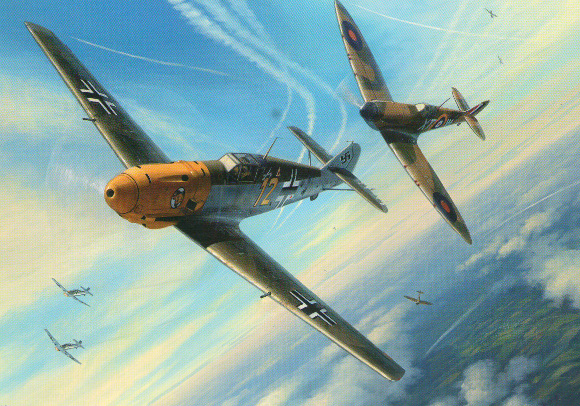World War Two was the world’s first true global conflict. While much of the fighting took place in Europe, there were also battles in Asia, Africa, the Pacific and even Alaska. More than fifty countries were involved. With a war this vast, there are bound to be many important events that can be discussed.
The first key event that will be mentioned was Germany’s invasion of Poland on Sept 1, 1939, which signaled the start of the war. This unprovoked attack led to Britain and France both declaring war on Germany. Within just a couple of weeks, the major fighting in Poland was over but World War II had begun.
After Poland’s fall, Britain and France were content to prepare for the war and wait to see what Germany would do next. It was not until the Spring of 1940 that the next key event of the war took place. On May 10, Germany launched an invasion of France. Many considered the French army to be one of the best in Europe. This was shown to not be the case as the Germans overwhelmingly forced France’s surrender after just six weeks of fighting. The main significance of France’s fall was that Britain was now standing alone against the Axis.
It was during the fall of France that one of the most impressive evacuations of all time took place at the French town of Dunkirk. Using Royal Naval vessels and hundreds of civilian boats over 200,000 British troops and 140,000 French troops were evacuated to England across the English Channel. This event was very significant because of the large number of troops that were rescued. These armies would be needed later in the on-going fight on Nazism.
With England standing alone, Germany soon turned its attention on that tiny nation. The eyes of the world were on the island nation as they waited for a German invasion. Before German forces could launch an invasion, however, the Luftwaffe needed to control the skies above Britain, as well as controlling the English Channel. In July of 1940, the Luftwaffe began attacking the Royal Air Forcebases and other strategic targets. The RAF fought tenaciously and bravely. The RAF was vastly outnumbered yet they consistently inflicted heavy losses on the German air force, while suffering severe casualties themselves.
During the Battle of Britain, one of the contributing factors to the British victory was that the air war took place over friendly territory. In many cases, a damaged British plane could be nursed back to an RAF airfield. In cases where a British pilot had to bail out, he did so in friendly territory and was often back in the cockpit of another fighter within a few hours. The Germans did not enjoy this luxury and suffered the loss of many experienced pilots that were either killed trying to nurse a damaged plane home across the English Channel or captured if they bailed out over England. By the middle of September, the Luftwaffe had suffered twice as many losses as the RAF and Hitler postponed his planned invasion of Britain. It was after this battle that Prime Minister Winston Churchill said, “Never in the field of human conflict was so much owed by so many to so few.”
To be continued…
My wife, Annie, and I are serving the Lord in Brazil. Would you consider becoming a part of our support team? Just click here to get started! Obrigado!

